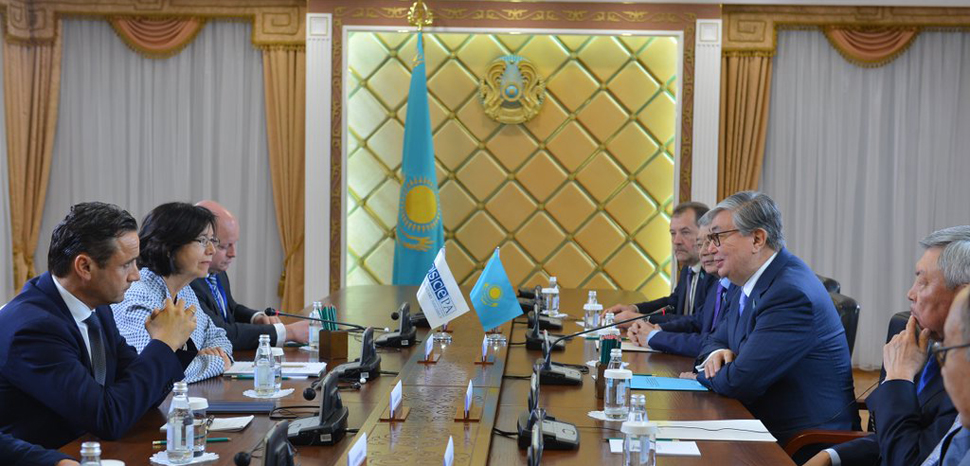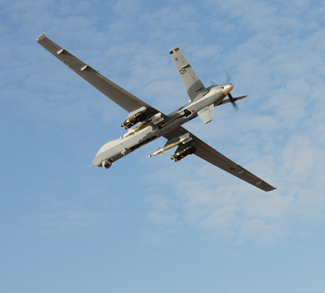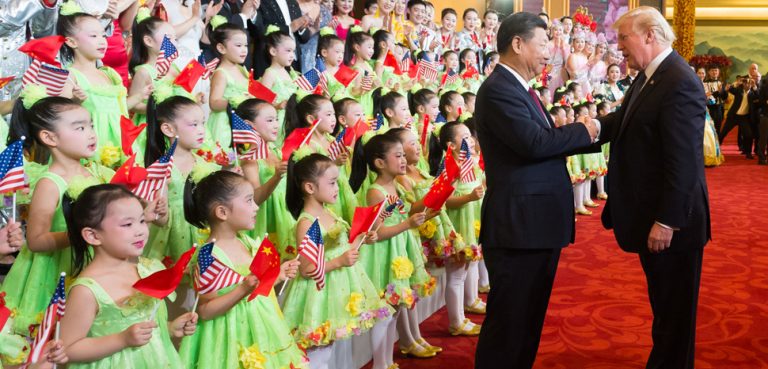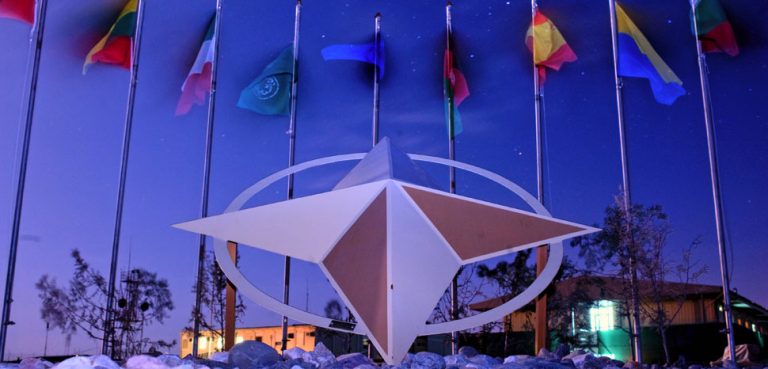Two key speeches given in September by Kazakhstan President Kasym-Jomart Tokayev provide a fairly good idea of what his foreign and domestic objectives will be: the Central Asian head of state addressed the 74th Session of the General Assembly of the United Nations on September 24, only a couple of weeks after he delivered his first State of the Nation Address on September 2.
Moreover, both speeches were momentous occasions, as it is the first time since the country’s independence in 1991 that Kazakhstan has not been ruled by someone with the last name ‘Nazarbayev.’
The UN Speech
President Tokayev’s remarks at the UN centered on four points: the importance of solving ongoing conflicts and inter-state tensions around the world; “lack of trust among global and regional actors,” growing inequalities, and environmental degradation. The last issue is particularly noteworthy, as the Central Asian leader stated that “the impact of climate change in Central Asia, particularly, will result in the dramatic existential challenges, like desertification, melting of glaciers and subsequent depletion of drinking and irrigation water.”
It is not surprising President Tokayev mentioned climate change as the Kazakhstani government has focused on saving the Aral Sea in recent years, with positive results. Similarly, Kazakhstan’s closeness to Afghanistan means that Nur-Sultan is very interested in seeing an end to this conflict. Similarly, Kazakhstani government has hosted 13 rounds of the Astana Peace Process, aimed at finding a peaceful solution to the Syrian conflict.
The economy is (still) important
As for the State of the Nation speech, President Tokayev made it clear that social reforms are impossible without a strong and developed economy. Therefore, the head of Kazakhstan sees the basis of the country’s development in solving economic problems. The priorities, in his opinion, should be, efficiency, knowledge intensity, and digitalization. Geographically distant countries like Belarus and Germany are similarly viewed as another potential trade partner, while Nur-Sultan is seeking to “attract investments from South Korea to develop its infrastructure, IT technologies, agriculture, and healthcare industries.”
In his speech, President Tokayev stated “the Ministry of Trade and Integration and the Ministry of Agriculture should strongly support farmers with the marketing of their products in foreign markets.” (Interestingly, he did not mention the agency Kazakh Invest by name, though this entity is specifically tasked with finding and securing investors.)
The head of state did his own share of networking with potential investors while in New York as he reportedly met with Ben van Beurden, Chief Executive Officer of Royal Dutch Shell; Jamie Dimon, Chairman and CEO of JPMorgan Chase; Steve Stouffer, Group President of Tyson Fresh Meats;Steve Kanevsky, CEO of Valmont Industries (the two already met in June to discuss cooperation in the agro-industrial sector); Saeed Amidi, Founder and CEO of Plug And Play, among others.
Agriculture: the future
Tokayev also declared in his State of the Nation that the agricultural sector should become the driver of the entire Kazakh economy – for years, the Kazakhstani government has attempted to slowly move away from its reliance on the exports of metals, uranium, and oil as the cornerstone of its economy.
For example, the country is developing new strategies to increase exports of cereal and flour. Hence, Kazakhstan is looking for new clients for its non-mineral/energy products, in addition to strengthening exports to its existing partners. Case in point, the Kazakhstani head of state visited China in early September, where he stated that he wants his country to increase exports of wheat from 550,000 tons in 2018 “to 2 million tonnes.”
Finally, in his State of the Nation speech, President Tokayev stressed once again that Kazakhstani agricultural land will not be sold to foreigners; “as Head of State I repeat: our land is not for sale to foreigners. This is not allowed,” he said. This statement was made in the context of ongoing unfair use, or rather, lack of use of land by some “latifundistas” (land-owners). In 2016, there were protests in the country against changes to the Land Code, which “was approved in November but [came] into effect on 1 July [2016], and enables land to be sold or leased at auctions. The law fuels one of the protesters’ biggest fears – that Chinese investors will come and buy out their land.” With anti-Beijing sentiments growing in Kazakhstan, it is important for Nur-Sultan to reassure Kazakhstanis that they will continue to own and benefit from Kazakhstani land.
State of the Nation: internal affairs
Regarding domestic affairs, the cornerstone of President Tokayev’s strategy will be the social component. For example, back in April, Nur-Sultan announced that it will “boost salaries for education system workers from 10 to 30 percent,” while in August at a conference of school teachers, the president announced his plans to “double teachers’ salaries over the next four years. This means that next year, [the] salaries of teachers will grow by 25%,” and “educators will no longer need to go to school on Saturdays, which they were required to do despite the new five-day system.” During his State of the Nation speech, President Tokayev reiterated how he has significantly expanded his plans to improve the status of the teacher through the adoption of a bill titled “On the status of the teacher,” which include “doubling the payment for classroom management and checking notebooks, increasing the period of leave for all teachers up to 56 days, remunerating for a master’s degree and others.”
The Republic has ambitious plans to increase spending on education, science, and health in the coming years, until it reaches 10% of the country’s GDP. One noteworthy educational plan is to make young Kazakhstanis trilingual (Kazakh, Russian, and English). While promises related to education are unsurprising for any leader, it is worth remembering that more than half of Kazakhstan’s population of 18 million is under the age of 30, thus, the impact of having a well-educated large, young population is all the more important.
Moreover, the head of state made special note of “families with children with disabilities. According to official statistics, over 80,000 children are registered as having a disability. The Government should develop measures to improve the medical and social support of children with cerebral palsy.” This is a particularly positive development as Kazakhstani children with special education needs struggle to receive a proper education; hopefully the president’s statements bring a new momentum towards improving their situation.
Are political reforms coming?
In his State of the Union Address, the President of Kazakhstan did not limit himself to socio-economic initiatives, as he reiterated his commitment to political reforms that include further liberalization. He stated the need to develop political competition and promote multi-party, public, and civil dialogue. The country’s June 2019 elections brought a sense of excitement to the country, as they were more contested and open than previous elections, and while it was generally assumed that President Tokayev would emerge victorious, the results suggest that we could see the beginnings of a stronger political opposition and dissenting voices. He reiterated this promise during his UN speech, as he stated to the world that “as part of my agenda, I launched the National Council of Public Confidence to promote a meaningful dialogue between government and society.”
At the same time, he instructed the relevant state bodies to update and reform the legislation that deals with political rallies so that, according to the Constitution, citizens can freely go to peaceful rallies, and be able to express their opinions in the manner prescribed by law.
The pledge is likely a direct outcome of international and domestic concerns regarding many arrests made during the June elections. Moreover, at the time of this writing, a number of anti-Chinese protests have taken place in Kazkahstan, and dozens of protesters were arrested; the protests have been attributed to “supporters of Mukhtar Ablyazov, a fugitive banker living in France.” The Kazakhstani government has attempted to have Ablyazov extradited for the embezzlement of over USD$ 5 billion.
Concluding remarks
Kazakhstan remains the largest Central Asian state, rich in oil and other natural resources, and the new head of state’s goal is to achieve not only an economic breakthrough in the near future, but also, contrary to assumptions otherwise, take steps to democratize society. In his first State of the Nation address and his first speech to the United Nations, President Kasym-Jomart Tokayev defined his objectives and goals for the coming years.
The views expressed in this article are those of the authors alone and do not necessarily reflect those of Geopoliticalmonitor.com or any institutions with which the authors are associated.




